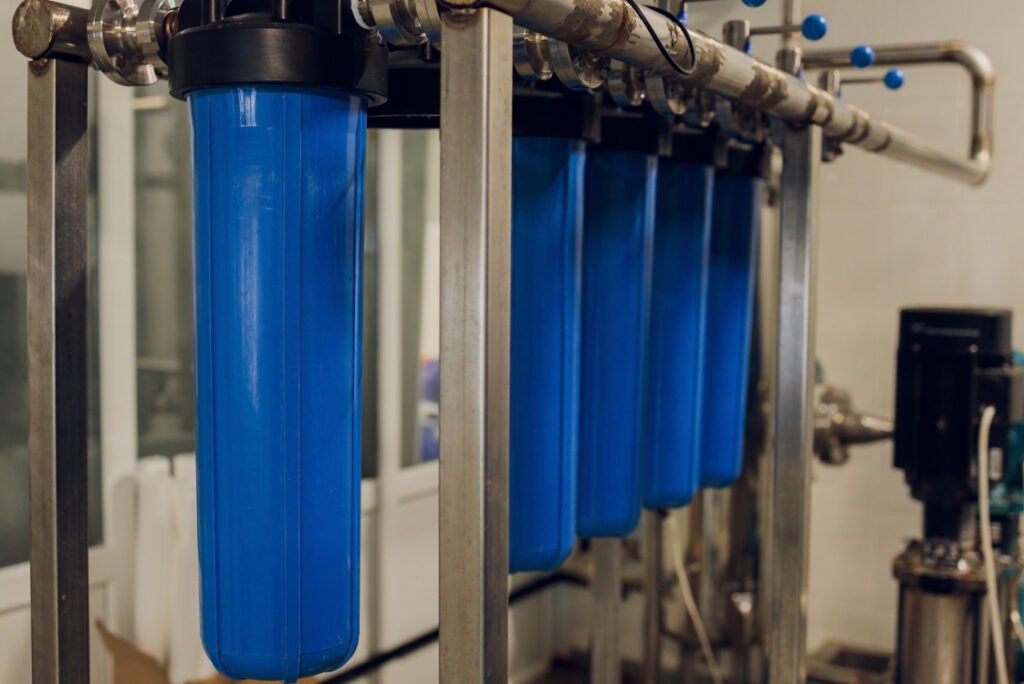Filtration

The filtration industry is focused on the manufacturing and maintenance of a wide range of products, from air filters to water filters. To ensure product performance and customer satisfaction, a good quality management system must be set up. In addition to this, the quality management system will also ensure that the filters do not pose any health risks and are compliant with industry standards.
how can we help you?
Management System for Filtration Industry
Services for Filtration Industry
UQS Consultants Communication services include,
- ISO 9001 and ISO 14001 consulting, implementation and training
- ISO 45001 consulting, implementation and training
- Other ISO management system consulting, implementation and training
For more information about our full list of services for the filtration industry, feel free to contact us.
About ISO 9001
The International Organization for Standardization originally published the ISO 9001 standards in 1987. This is a generic standard for quality systems that specifies the necessary components needed for a quality management system. ISO 9001 explains the basic requirements of the quality standards for all industries rather than any single industry.
The ISO 9001 standards provide the essential tools to help grow your business to a better one through continuous improvements and streamlined processes. Around 5,00,000+ businesses have received ISO 9001 certifications all over the globe, making this the most recognised standard of quality across all industries.
About ISO 14001
One of the key objectives of the society is the protection of the environment. A dramatic rise in the awareness about environment and stricter environmental regulations has motivated many organisations to incorporate environmental protection directly into the structure of their corporate management systems.
Several top companies and corporations have been using environmental management systems (EMS) for years to help them achieve their environmental objectives. At present, a streamlined environmental management standard is available to all corporations – the ISO 14001 standard. This standard outlines a set of key requirements that companies must comply with in order to carry out their operations in an environmentally responsible way.
ISO 14001 offers organisations a framework for managing and improving their environmental programs continuously. Companies have already been monitoring different water and air permits, as well as programs to reduce toxin use. By making use of ISO 14001, companies can now merge different environmental programs into a single system to effectively handle all their environmental management activities.
The ISO 14001 can provide a competitive advantage to your organisation, by indicating to customers how you continually manage and improve your environmental processes to minimise any negative impact to the environment. It also shows that these processes are an integral part of your corporate management system.
About ISO 45001
ISO 45001 provides a clear direction to an occupational health and safety management system. It is not a legislative requirement or an implementation guide. Rather, it is a certification or audit specification. The ISO 45001 does not set specific performance criteria, or offer any specifications for management system design. Instead, the system is focused towards reducing and preventing accidents and the loss of lives, resources and time due to accidents.
The ISO 45001 standard is compatible with the ISO 9001 quality standards and ISO 14001 environmental standards. The aim of ISO 45001 standard is that any organisation that implements this standard can seamlessly integrate it with other management systems like quality, environmental or occupational health and safety. ISO 45001 follows the Plan-Do-Check-Act approach, with an emphasis on continuous improvement. This model aligns easily with the structure of other management systems standards such as the ISO 14001, thereby assisting the progress of integrated management systems.
The components of ISO 45001 standard includes hazard identification, risk assessment & risk controls, objectives and programs, organization and personnel, policy and commitment, communication and consultation, training, documentation and records, legal requirements, measurement and monitoring, operational controls, accident and incident investigation, emergency readiness, audit and review, corrective and preventive action, and application and relevance in the industry.
About ISO 13485
Manufacturers across the globe, including in the US, Japan, Canada, EU, accept the ISO 13485 standard as the quality standard for medical devices. This standard consists of requirements which are specific to the medical devices business sector and provides definition for terms such as medical device, active medical device, implanted medical device, sterile medical device, etc.
The ISO 13485 ensures the minimisation of unexpected risks for companies who design, manufacture or use medical devices and services, including during fabrication and beyond. The goal of this standard is to enhance your reputation with authorities and customers. One aspect to highlight is that this is an independent standard that can be implemented without ISO 9001, provided your company works only in the medical industry.
Looking for a Professional Quality Management System Consultant ?

